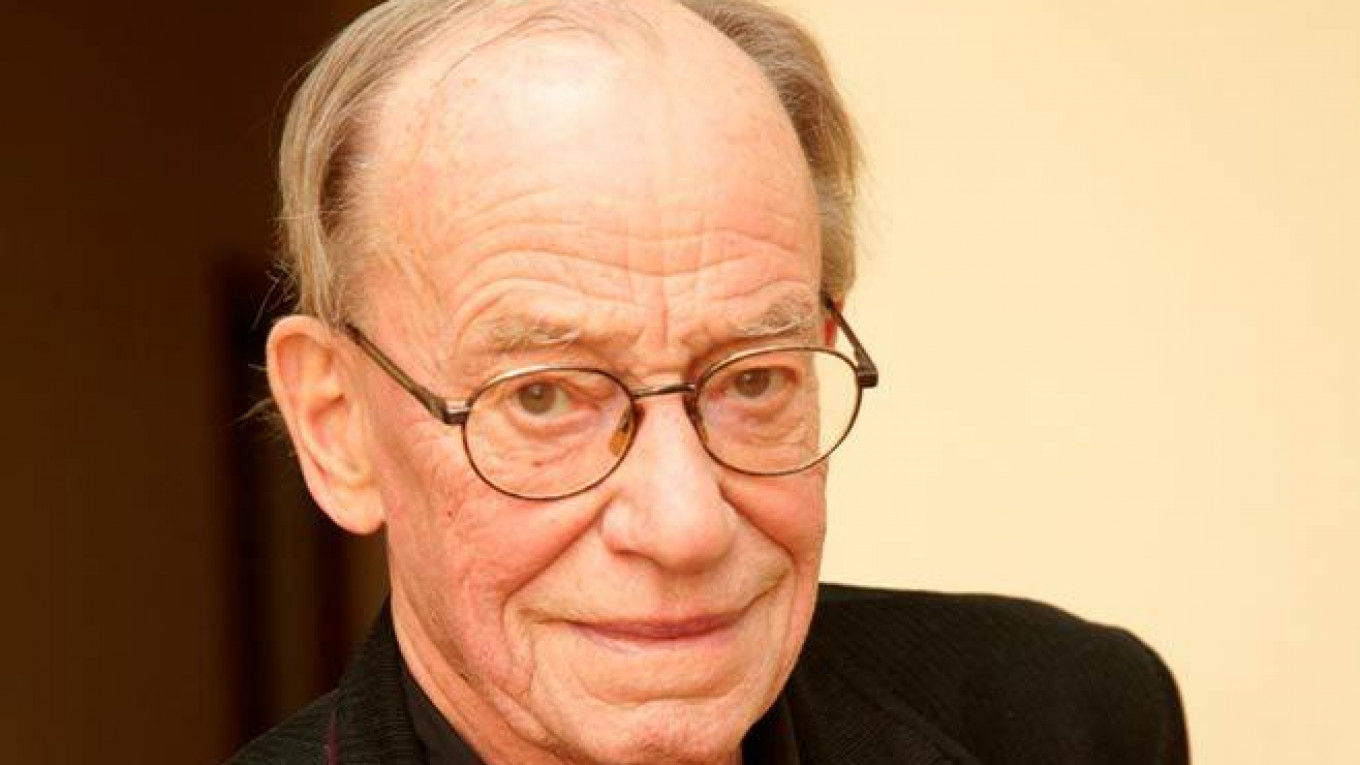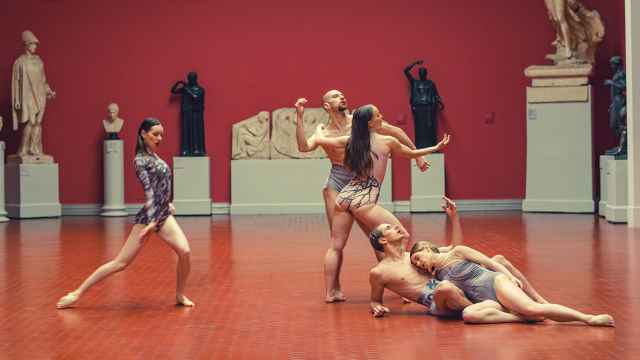Raymond Stults, The Moscow Times’ classical music, dance and opera critic since 1994, has died at the age of 82.
Stults, a native of Chicago, became interested in the Soviet bloc during a year abroad at the University of Munich in 1955. He went on to study Russian and get a master’s degree in Russian Studies at Harvard University, followed by a law degree from the University of Michigan. He was co-author of the first English translation of the Civil Code of the Soviet Union.
He had a career in international business law specializing in East-West trade during the Soviet era. His daughter, Virginia Stults, recalled his work to set up multi-party barter deals in the era when the eastern bloc countries had little hard currency. In order for cash-starved Yugoslavia to get computers, for example, “Yugoslavia gave tomatoes to Heinz, Heinz paid Sperry computers, and then Sperry gave computers to Yugoslavia.”
Despite the very down-to-earth work on these deals, Stults was, she said, a visionary. “Even at the height of the Cold War, he always felt there were opportunities for trade with the Soviet bloc and he firmly believed that communism would ultimately fail. At the time, people thought he was crazy. His own mother wouldn't tell friends that he was getting a degree in Russian Studies out of fear that people would think he was a communist.”
In the early 1990s at the age when most people think about retirement, Stults came to Moscow, excited about the business opportunities. In addition to his law work, he began a new career at The Moscow Times — albeit at first unintended. A lifelong music lover, he offered to write a review of a classical music performance, thinking, he said years later, that it would be a one-off.
But it wasn’t. Over the next 22 years, Stults wrote hundreds of reviews, articles, and interviews for The Moscow Times on dance, opera and classical music. It’s no exaggeration to say that hundreds of thousands of expats and visitors to Moscow learned to appreciate the classical performing arts from Stults’ reviews. They were informative, erudite, and fair, written with grace and attention to detail — and utterly trustworthy. If Stults wrote that Mariinsky prima ballerina Ulyana Lopatkina was “in absolutely first-rate form,” you knew that she was, since he had seen her dance dozens of times, and seen every version of the ballet that had been performed in St. Petersburg and Moscow for the last 20 years. He was always looking forward to the next performance, the next new dancer, the next Moscow premiere with extraordinary enthusiasm.
Kevin O’Flynn, The Moscow Times’ arts editor for many years, remembered Raymond Stults as someone who “knew more about ballet, opera and classical music than most of the staff at The Moscow Times did multiplied by a thousand. He was a strict protector of his carefully crafted prose and didn't suffer foolish editors who tried to edit him badly — and it was almost always badly. He often swooned at some of the performances he wrote about, but also carried a sharp dagger when writing to delicately slice a piece in two with a few words. Those pieces were the most fun for me. He gave something special to the paper, even if you never went to the ballet or opera or concert, and he will be sorely missed.”
Guy Archer, another long-time Moscow resident who is now head of the organization Capital Perspectives, shared his memories of Stults with The Moscow Times. “I first met Ray when I had a cultural magazine, also called Capital Perspectives. The Moscow Times had a rule that its writers, even its freelancers, couldn't write for us. So Ray wrote about music under the name Jay Coute, which we both thought was pretty funny, in a naughty schoolboy kind of way.
“I'm from Virginia,” he continued, “and Ray liked to talk to me about his days in Virginia, at college in Lexington and later around D.C. He very much had a natural Virginia Gentleman air about him — the way he dressed, his gentle manners, his understatement, his way of telling a good story. His memory was remarkable — like the details he could remember from concerts and performances. We would meet for lunch, and it was just a pleasure to sit and listen to him. He was so knowledgeable, but never pedantic. His enthusiasm was contagious, just as it was in his writing. He knew so many people, was so connected. And it's easy to understand why. He was so genuinely intelligent and charming and had great taste. He was a pleasure to be around. He was a remarkable man.”
Raymond Stults is survived by two daughters and two granddaughters in the U.S., where he will be buried.
If you would like to send condolences to the family, address them to m.berdy@imedia.ru.
A Message from The Moscow Times:
Dear readers,
We are facing unprecedented challenges. Russia's Prosecutor General's Office has designated The Moscow Times as an "undesirable" organization, criminalizing our work and putting our staff at risk of prosecution. This follows our earlier unjust labeling as a "foreign agent."
These actions are direct attempts to silence independent journalism in Russia. The authorities claim our work "discredits the decisions of the Russian leadership." We see things differently: we strive to provide accurate, unbiased reporting on Russia.
We, the journalists of The Moscow Times, refuse to be silenced. But to continue our work, we need your help.
Your support, no matter how small, makes a world of difference. If you can, please support us monthly starting from just $2. It's quick to set up, and every contribution makes a significant impact.
By supporting The Moscow Times, you're defending open, independent journalism in the face of repression. Thank you for standing with us.
Remind me later.







